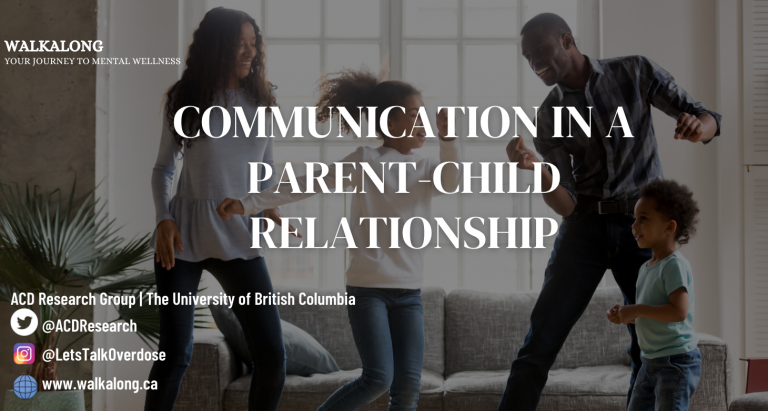Communication in a Parent-Child Relationship
Communication in a Parent-Child Relationship
One of the most important parts of any relationship, whether it be between friends, lovers, or family, is communication. That being said, sometimes expressing your feelings and ideas to others, especially if you think you know how they’ll react. In particular, when you are growing up, communication with your parents can begin to change, from them being used to lecturing you, to speaking to each other like equals. This stage could be exceptionally hard to navigate and can wear away at the parent-child relationship, especially if they are fighting every day. That being said, here are five quick tips to help you tackle that difficult conversation with your parents!
Number 1: Chit Chat!
Talk to them more! Although this sounds self-explanatory, it’s quite important to have a conversation with your parents even when there’s nothing to communicate about. Find some time each day in which you can exchange some words that aren’t about school, job searching, health, or anything super serious. This is good to not only get to know your parents more but also to show them that you have become independent and mature!
Number 2: Anger breeds anger
Try not to be too emotional when talking to your parents about serious topics. This is not to say that you should act like a robot when you talk to your parents. However, it is easy to lose your temper at somebody, degrading the conversation into an argument. In order to stray away from this negative behaviour, you should take some time to think about what you want to say to your parents before you confront them, perhaps giving yourself some time to think about the situation. Other methods that may help you prepare for the conversation are: writing down your points in a notebook, breathing exercises, practicing what you’re going to say, etc. If you find that your parents are the ones changing the conversation into an argument, tell them what they are doing and how that is affecting you, and give them some time to reflect on their actions.
Number 3: Don’t take your parents for granted
A lot of the time, children (and parents alike) allow themselves to say things to each other that they wouldn’t even say to a friend or a partner. This is not because they don’t love each other, but rather because they are used to being in each other’s lives, and both parties understand that they can never really leave each other, unlike in a friendship or a relationship. However, this is not a reason to treat them in a worse way. Thinking that a parent-child relationship will not degrade and will always be there is wrong: eventually, without communication, it will worsen until it breaks. Thus, you should never take this relationship for granted, just like how you would treasure a friend.
Number 4: Different Point of View
There are currently almost 8 billion people in the world, and each person has their own thoughts, needs, wants, and life. Although you think you know everything about your parents, they are no different than the other 8 billion people in the world. They have their own thoughts and beliefs, and have gone through their own experiences that shape who they are. Much like how there are differing opinions in the world, sometimes, their opinions just might not match up with yours. It is important to keep this in mind when entering a difficult topic with your parents. Although your opinion may ultimately be correct, they most likely think the same thing as you: their opinion is the correct one. Furthermore, if they were brought up believing a certain opinion, it may be hard for them to change their mind or admit that they are wrong. Or perhaps, there is neither wrong nor right. Regardless of what the outcome is, people are prone to thinking that they are right, and, as a result, won’t even bother to listen to the other party. That isn’t a conversation! Try to stay as open-minded as possible, and always acknowledge their points as well.
Number 5: What do you want?
Sometimes, we may be fighting for something without even really knowing what we want out of the conversation. Is it that you want your parents to admit you’re right? For them to understand? Or is it an action that they should take? Depending on what your answer is, your methods of approaching the situation will differ. For example, if you wish for them to understand, then getting angry and yelling at them would not help you achieve that goal. Instead, patience and understanding, as well as speaking truthfully will most likely help you. If your goal is to win the argument and for them to admit you’re right, perhaps you should ask yourself if it’s really worth fighting for, or what your relationship with your parents means to you.
At the end of the day, there really is no surefire way to tackle difficult subjects with your parents. Conversations go both ways: so long as the other person refuses to participate, it won’t work. However, you can’t change anybody but yourself, so although your parents might not listen to you, try your best to listen to them, and hopefully one day, you can have an open conversation with your parents about difficult topics. Good luck!
Retrieved from https://csktribes.org/parent-child-relationships-info-graphic
More helpful articles:
https://www.verywellhealth.com/how-to-have-a-difficult-conversation-4589092


